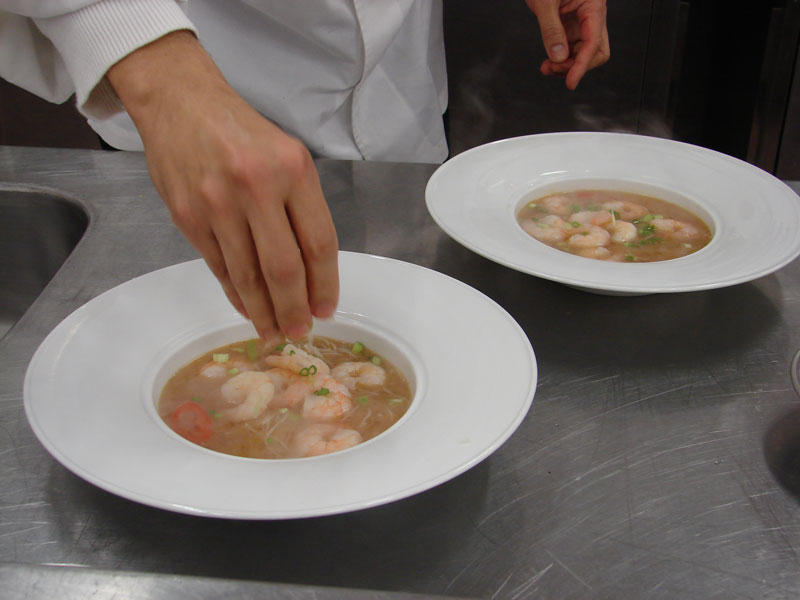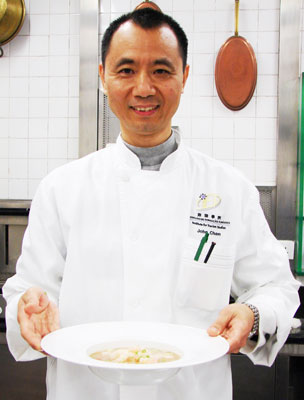What's Cooking in... Macau
This item appears on page 58 of the September 2014 issue.
Macau (originally spelled “Macao”) was the last of the Portuguese colonies. On Dec. 20, 1999, after being administered by Portugal for 442 years, Macau was returned to Chinese governance. Today it is a Special Administrative Region of the People’s Republic of China.
The Chinese government has a policy of “one country, two systems,” so Macau is administered by the Macanese people and retains its capitalistic system — similar to Hong Kong.
In January 2014, my husband, John, and I took the one-hour ferry from Hong Kong to Macau. (We did not need visas to visit Hong Kong or Macau, but we would have needed visas to visit mainland China or if we crossed into Hong Kong or Macau from mainland China.)
We found that many areas of Macau still display evidence of Portuguese heritage.
During our visit, we stayed at Pousada de Mong-Há (Colina de Mong-Há, Macao, China; phone [853] 2851 5222), which is part of, and operated by, the Institute for Tourism Studies. We paid $88 per night for a double room, with breakfast.
Since the Middle Ages, the word “pousada” has been used to mean “a place of rest and welcome,” and today it identifies a group of traditional Portuguese inns. This pousada, located on a hilltop and once a 19th-century fortress, has small patios with fountains and traditional Portuguese tile accents.
Asking if the school offered cooking classes for nonstudents, I was told they normally do not, but, as the students were on break, Chef John Chan offered to show John and me how to make Shrimp & Rice Vermicelli Soup.
Because it is a shellfish dish, the soup was often served the day before Christmas, which traditionally was a day of abstinence and fasting for Catholics.
Typically, Macanese recipes are blends of cuisines from southern China and Portugal. Chef John said, regarding this dish, “It is Asian ingredients using Portuguese cooking methods.”
He advised, “Remember to taste. You can change a recipe to one’s personal taste. It is the variable in the art of cooking. Recipes are very flexible. I like to add crab meat to the soup, but then it is not traditional.”
2 tbsp olive oil
1 tbsp shrimp paste
1 medium onion, diced
3 cups fish (or chicken) stock
¾ pound shrimp
2 bay leaves
one small sliced chile (optional)
*q.b. salt, pepper, parsley, sugar
2 tbsp spring onion, thinly sliced, for garnish
* The term “q.b.” in Portuguese recipes refers to the words “quanto basta,” which is a Portuguese phrase that translates to “as much as you desire/want.”


